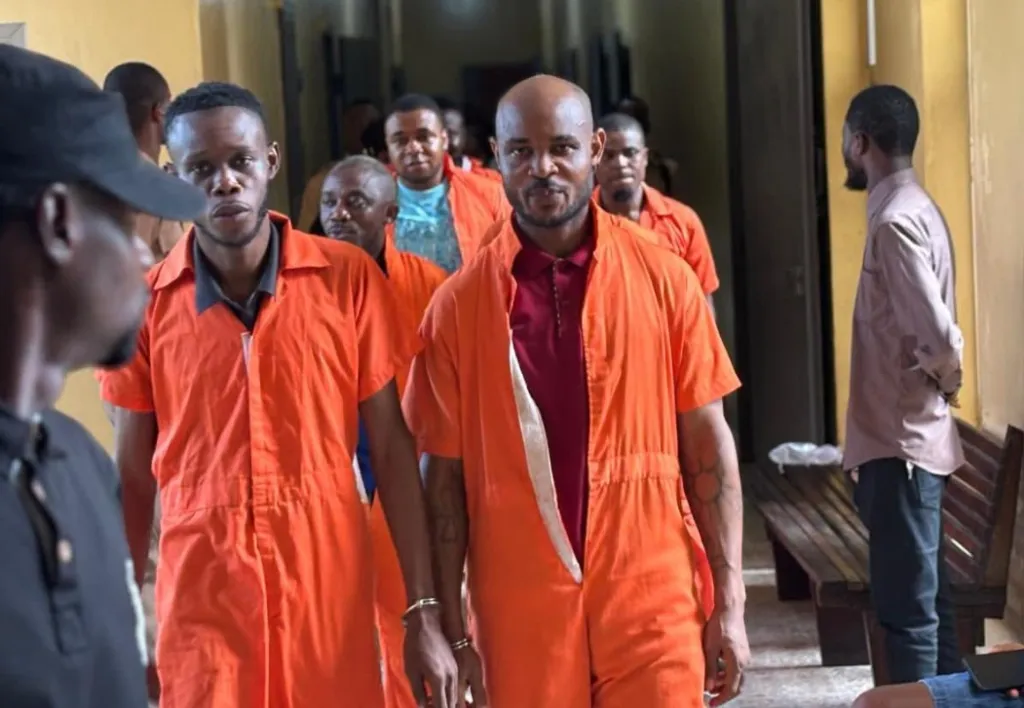The ongoing arson trial related to the Capitol Building incident has taken a significant turn with the release of an independent medical examination report. Conducted in accordance with the UN- Istanbul Protocol and the UN Manual on the Effective Investigation and Documentation of Torture, the examination reveals compelling evidence of torture and ill-treatment inflicted upon the defendants. This report, prepared by Dr. Philip Zochonis Ireland, a qualified medical professional, details the injuries sustained by the defendants and corroborates their claims of abuse. The findings raise serious concerns about the treatment of the accused and cast a shadow over the legal proceedings.
The defendants, Jerry Poka, Eric Susay, and Thomas Etherige, all aged 40, have each detailed harrowing accounts of physical abuse while in custody. Jerry Poka alleges injuries resulting from tightened handcuffs, repeated blows to the head, beatings on the soles of his feet (falanga), an arm injury, and a cut sustained when thrown against a doorknob. Dr. Ireland’s examination confirmed skin lesions consistent with these allegations of torture and blunt trauma. Eric Susay recounted being beaten with handcuffs and guns, blindfolded for two days, and suffering injuries to his left shoulder, right arm, and hand. Dr. Ireland’s report highlighted the left shoulder disfigurement as highly consistent with Susay’s account of being beaten with blunt objects. Thomas Etherige described severe beatings with handcuffs, resulting in neck pain, being punched in the eye, stripped naked, beaten with batons, and repeatedly slapped. Dr. Ireland linked Etherige’s irregular cardiac rhythm, history of blunt trauma, and ongoing psychological manifestations to the alleged torture and ill-treatment. All three defendants denied experiencing sexual assault or sodomy.
The medical examination was ordered by Judge Roosevelt Z. Willie of Criminal Court “A” after defense lawyers raised concerns about the initial proposed examination site, JFK. Judge Willie directed the defendants to AMI Expeditionary Healthcare, citing its adherence to international standards and neutrality. He ordered the Ministry of Justice to cover the costs and mandated the submission of the medical reports to the court by September 17, 2025, to inform a ruling on a pending Motion to Suppress Evidence. This motion likely pertains to the admissibility of evidence potentially obtained through coercive means.
Despite the judge’s efforts to ensure an independent assessment, the defense lawyers immediately objected to the chosen facility, AMI. They argued that AMI’s contractual ties with the government compromised its impartiality, rendering it no different from JFK in their view. The defense maintains that the court’s decision is unjust, prejudicial, and infringes upon the rights of the accused. This disagreement highlights the deep mistrust between the defense and the prosecution regarding the handling of this case. The defense’s objection also underscores the delicate balance between ensuring a fair trial and accessing credible medical evaluations in a context potentially marked by political influence.
The timing of the medical report is noteworthy, coinciding with the departure of a UN Human Rights Commission delegation after discussions with various institutions, including the country’s Independent National Commission on Human Rights. This suggests that the international community is closely monitoring the situation and the human rights implications of this trial. The report’s findings could potentially influence international pressure on the government to ensure a transparent and just legal process. The allegations of torture, if substantiated, could lead to further investigations and potential sanctions.
The independent medical examination report stands as a crucial piece of evidence in this unfolding legal drama. Its findings lend significant weight to the defendants’ claims of torture and ill-treatment, raising serious questions about the conduct of law enforcement officials. The defense’s objections to the examination process further complicate the matter, highlighting the challenges of ensuring fairness and impartiality within the legal system. The international community’s scrutiny adds another layer of complexity, underscoring the potential global ramifications of this case. The trial’s outcome will likely have profound implications for the country’s legal system and its commitment to upholding human rights. The allegations of torture, if proven, could lead to significant reforms in law enforcement practices and accountability measures. The case also serves as a reminder of the importance of independent oversight and international scrutiny in safeguarding fundamental human rights.














